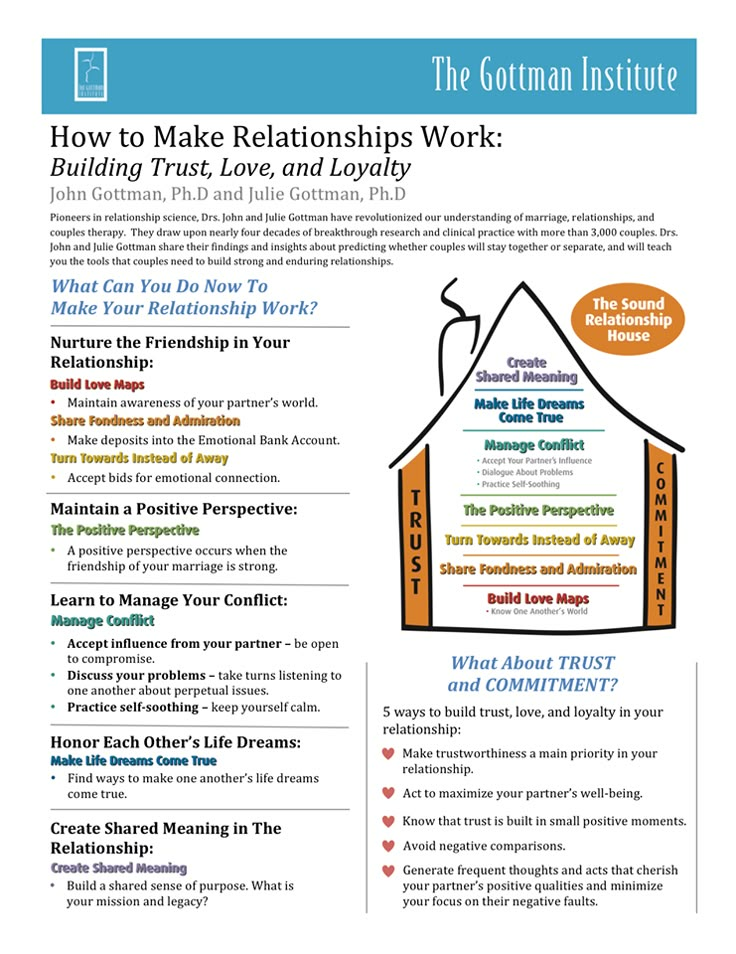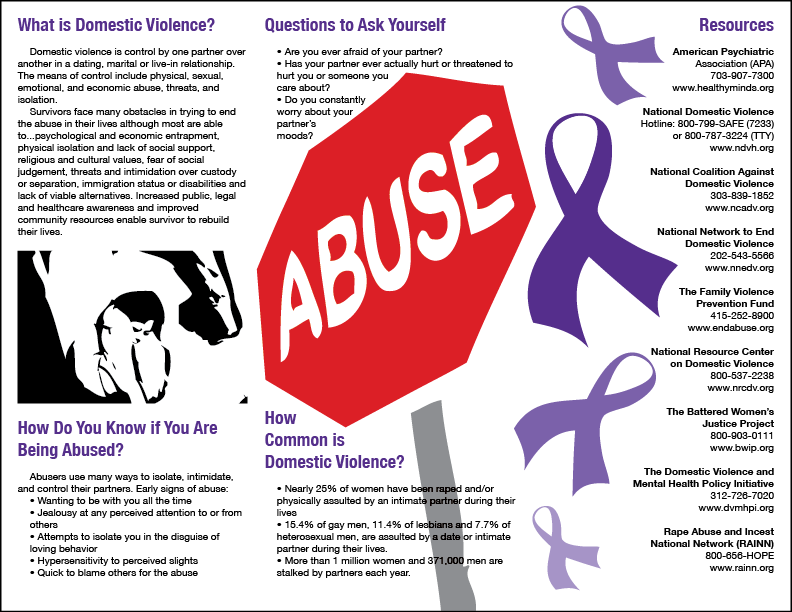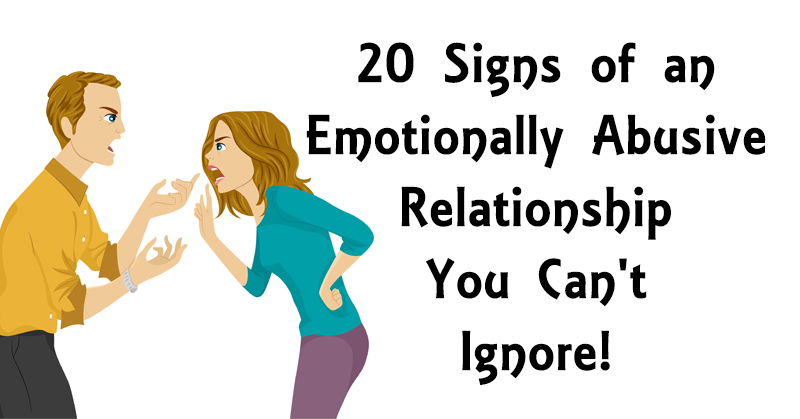Self sabotaging quiz
Self-Sabotage Quiz — The Ford Institute
1. How long have you been working on the same issues, be they in the area of your career, health, intimate relationships, or finances?Less than 12 months
1-3 years
More than five years
More than ten years
2. In the past 12 months, how many times have you misplaced something important, gotten a traffic ticket, had an accident, or destroyed something of value?
None
Once or twice
More than five times
More than ten times
3. How often do you feel phony, inauthentic, or find that it takes a lot of effort to get people to perceive you in a certain way?
All the time
Occasionally
Almost never
Never
4. If your friends, co-workers and family members were interviewed, would they say that you complain...
Seldom to never
Maybe once a day
Frequently
All the time
5. In the past 12 months, how many times have you said something that you later regretted, whether immediately or over time?
None
Once or twice
More than five times
More than ten times
6. After you've achieved a personal goal - reached your desired weight, paid off your credit cards, organized your home or office, etc. - which of the following emotions are you more likely to experience?
Relieved that you made it but wary that you may backslide into old behaviors
Entitled - you deserve a reward for all your hard work!
Motivated by your success and committed to keeping up the good work
Resentful that you had to work so hard in the first place
7. How often do you notice yourself feeling inadequate, not good enough, unloved, or unworthy?
All the time
Occasionally
Almost never
Never
8. On a scale of 1-10, how willing are you to speak your truth, even if it runs contrary to the opinions of others?
8-10; I am very willing to speak my truth.
5-7; Most of the time I am willing to speak my truth.
3-5; I am occasionally willing to speak my truth.
1-2; I am almost never willing to speak my truth.
9.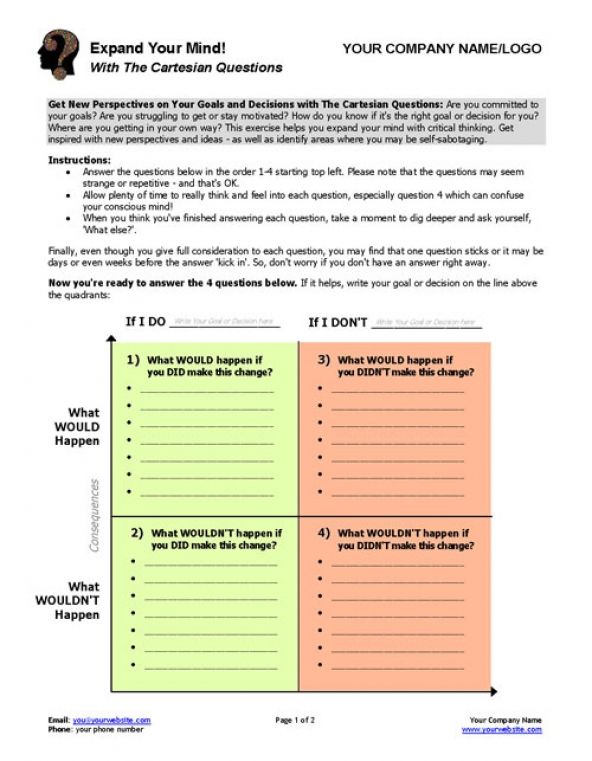 In your life right now, your primary focus is on...
In your life right now, your primary focus is on...
Advancing your career, improving your health, building wealth, or deepening your relationships
Managing strained relationships or "putting out fires" at work and at home.
Making measurable progress toward your goals over a reasonable period of time.
Trying to avert or avoid immediate disaster in the area of your finances, relationships, health or career.
10. What percentage of the time can you count on yourself to keep your word and uphold your promises - whether to yourself or to another?
Less than 10%
Less than 25%
About half the time
Most of the time
11. How much time each day do you spend gossiping - whether talking about someone you know, reading tabloids or watching gossip TV?
None
Less than one hour a day
More than one hour a day
More than three hours a day
12. Which of the following statements would you use to describe your life?
Most of the time, things work out fairly easily for me.
I have many talents and gifts, but do not use them to their fullest potential.
I am riddled by bad luck and find myself in one bad situation after another.
I have to work hard just to maintain the status quo.
13. How many hours a day do you spend working toward your long-term goals?
None
Less than twenty minutes per day
An hour or more per day
You have no long-term goals
14. How frequently do you feel mistreated, misunderstood, or taken advantage of - in either your personal or professional life?
Every day
Frequently
Occasionally
Seldom to never
15. When asked to do something that you have no interest in doing, you are most likely to...
Say no with a clear conscience
Say no but feel guilty about it
Say yes but not follow through
Say yes but feel resentful about it
16. Imagine that your life is a house with many rooms. How many people do you allow to see all of your rooms?
Nobody
One significant person - a spouse, lover, best friend, parent, etc.
A small handful of people know me that well
There are many people in my life who know me that well
17. When you feel hurt by someone or something, what do you tend to do?
Keep it to yourself
Reflect, forgive, and move on
Confront the situation head-on
Talk about it to everyone but the person involved
18. When you get an impulse or an idea about how to improve some aspect of your life, you usually...
Ignore it completely
Take a few steps in the right direction but rarely see the project through to the finish line
Tell yourself that you'll "get to it one of these days"
Create a support structure around yourself to ensure that you take action.
19. The last time you found yourself with a block of unexpected free time, what did you do?
Squandered it by catalog shopping, watching TV or surfing the internet
Used the opportunity to move forward on an important project
Relaxed and rejuvenated yourself by taking a nap, meditating or reading
Your life is so hectic that you can't recall an occasion when you had an unexpected block of free time
20. When you make a mistake, are you more likely to...
When you make a mistake, are you more likely to...
Be gentle with yourself and resolve to do things differently in the future?
Put things in perspective by acknowledging yourself for what you did right?
Fall into a downward spiral of self-criticism?
Interpret your misstep as evidence that you are incompetent, and stop trying?
What’s your self-sabotage specialty? | Interact Quiz
What’s your self-sabotage specialty?
Most of us have sneaky little habits that hold us back and trip us up. Take this not at all uncomfortable quiz to find out what you do to derail yourself from achieving your goals – how you can call yourself on your own BS – and get out of the way of your own success!
Take the Quiz
It’s time to start a new task. What’s your first step?
No need to rush! There’s plenty of time! Besides, there’s a new show I want to binge watch first...
First things first, panic. Make sure you have all your pens lined up and Post-It’s ready to go, because this is A. Big. Deal. Everything needs to be perfect.
Big. Deal. Everything needs to be perfect.
If it’s a group project, I better take the reins. Experience has taught me that I can’t trust others to do their jobs, so even though my coworkers are pretty great, I can’t leave them without some micromanaging.
Another task? Yeah, sure I can totally do that! Just as soon as I’m done with all these other things on the list...
1 / 9
You’re about to start a new job. How do you feel heading in on the first day?
Sometimes I wonder how I manage to fit in a full time job with all my volunteer work and mile long To-Do List!
I picked out the perfect outfit, and even baked a tray of treats for everyone, including low sugar and gluten free options for everyone. I can’t wait to get my desk perfectly organized. A place for everything and everything in its place, right?
I’m not going to get too excited or stressed until I meet my team. It’s a good time to sit back and observe my surroundings. The lazy and untrustworthy ones show their true colors eventually.
The lazy and untrustworthy ones show their true colors eventually.
A little bit stressed because I waited ‘til the last minute to pick out an outfit and then I couldn’t find anything, and once I did pick something out, I accidentally spilled coffee on it as I was running out the door, and then I had to stop for gas on the way because I left it for this morning...
2 / 9
Which movie makes you feel a little called out?
Black Swan. The demanding world of elite ballerinas drives one swan’s perfectionism over the edge, as she toes the line between mastery and madness.
Adaptation. Nick Cage writes a script about him procrastinating on writing and adaptation of another script.
Yes Man. Jim Carrey leads this comedy about saying yes to every opportunity that comes along – and how finding a balance between what you want to do and what you have to do is most important.
10 Things I Hate About You. Kat swears she’s off men for good. They’re horrible, manipulative, horny good-for-nothing man-boys, and she doesn’t need them! But then Patrick Verona takes the stage to sing for her heart – and show her she might need to rethink her bias.
They’re horrible, manipulative, horny good-for-nothing man-boys, and she doesn’t need them! But then Patrick Verona takes the stage to sing for her heart – and show her she might need to rethink her bias.
3 / 9
Have you ever sought help to figure out the things that hold you back?
Why? Do you know someone who can help? I’m all ears!
I have a few friends that I can count on to ground me when I’m out of control.
Me? No, I’m doing fine. Perfect, actually.
I’ve reached out to a counselor or two. I can’t seem to figure it out on my own, and I’m tired of getting in my own way.
4 / 9
You’re in the Self-Help section of your local bookstore. Which title grabs your attention?
The Now Habit: A Strategic Program for Overcoming Procrastination and Enjoy Guilt-Free Play
Mistakes Were Made (But Not by Me): Why We Justify Foolish Beliefs, Bad Decisions, and Hurtful Acts
Overcommitted: How to Cut Chaos and Find Balance
How to Be an Imperfectionist
5 / 9
How much do you know about self-sabotaging traits?
Honestly, not that much.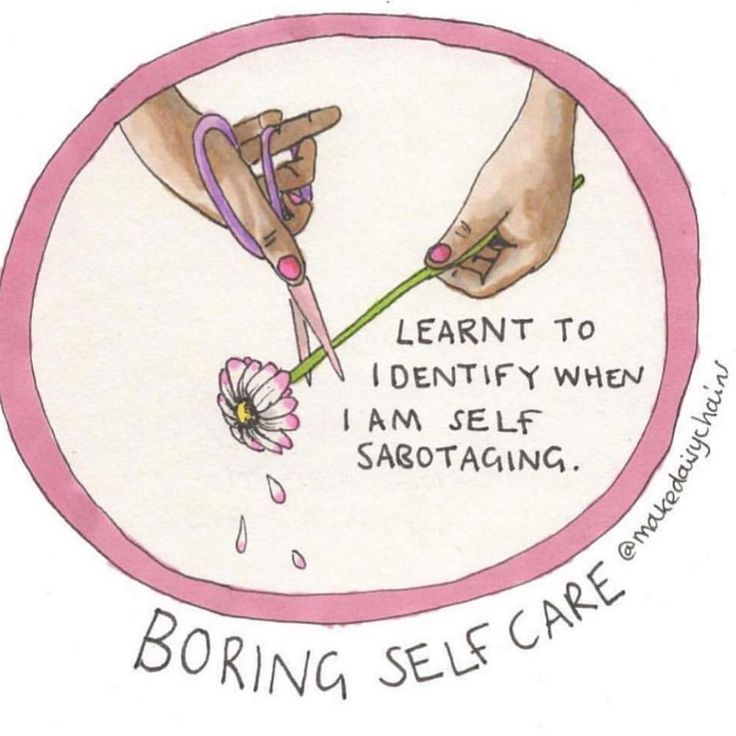 Is that like not tying your shoelaces before a race?
Is that like not tying your shoelaces before a race?
I know a lot. I just don’t know how to make the right changes to overcome them.
I think other people self-sabotage. I’m doing just fine. #noreally
I’ve been on a path to identify my own toxic traits for quite some time now. Can you help?
6 / 9
Who is your celebrity doppelganger?
Martha Stewart. She not only has her own super successful show, she also hangs out with Snoop Dogg and finds time to pen pal with some of her old prison buddies. #QueenBusyBee
Rihanna. She’s notoriously late for things, and usually shows up with wine in a stolen glass. #LifeGoals
Nicolas Cage. The man once sold his entire Superman collection because they didn’t cast him as the Man of Steel, even though he doesn’t have a Kryptonian jawline. #LiveYourTruthNick!
Serena Williams. She’s the GOAT of tennis, ladies or mens, and she honed her amazing skills through hours of gruelling drills and courtside study. #praticemakesperfect
#praticemakesperfect
7 / 9
If you could go back and tell your younger self anything about the things you struggle with now, what would it be?
Nobody can do everything all the time. Breathe in. Breathe Out
Just because your best friend hurt your feelings in second grade doesn’t mean all your friends are waiting to devastate you. You can trust again.
Finished, not perfect. Repeat until it sinks in.
Getting started is half the battle.
8 / 9
Which song could be your anthem?
“Perfectionist” by Will Jay. “I spent my whole life trying to be perfect.”
“The Lazy Song” by Bruno Mars. “Today I don’t want to do anything.”
“Taking Care of Business” by BTO. “Taking care of business and working overtime.”
“Blame it on the Rain” by Milli Vanilli. “Whatever you do, don’t put the blame on you.”
9 / 9
Your Self-Sabotage specialty is… Procrastination!
Are you always racing the clock? Do you ride the edge of tension with deadlines and social engagements? Do you tell yourself you perform better under pressure? Chances are pretty good your self-sabotage specialty is procrastination.
Don’t feel bad, every single human on the planet struggles with this at some point.
When you feel overtired, stressed, and mentally drained, the last thing you want to do is finish your homework, pack for your trip, or clean the whole house – so you put it off until later.
But eventually, later becomes now, and sometimes, it even becomes too late.
But when you find that later is always finding you with too much left to do, all the time, then it’s time to look to the root of the problem and figure out why you always wait until the 11th hour to get things done.
Because research has shown that people who describe themselves as chronic procrastinators, also reveal higher levels of stress, anxiety, and even depression.
So if you find yourself always giving into the lazy meh feeling of putting off the things you know you’re going to eventually have to do anyways, the time is now – not later – to uncover why you keep leaving things your current self doesn’t want to do, and let them pile up so your later self still has to do them, only with less time.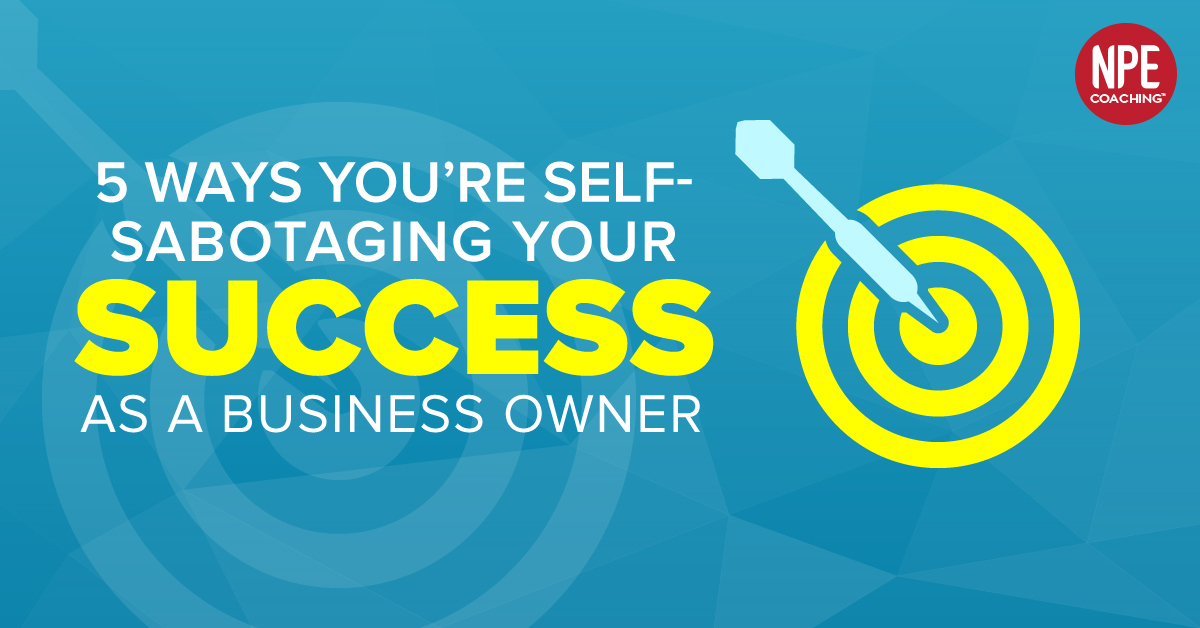
Because that leads to feelings of failure and inadequacy when you can’t complete the task well, and the results are unhappy and less than ideal.
Leading to you not wanting to do the next task that comes along, because you didn’t do so hot on the last one. See that self-fulfilling cycle ready to repeat itself?
Luckily, there are some ways to retrain yourself from procrastinator to proactivator.
1. Recognize when you’re procrastinating – If you start an important task, only to stop immediately for a coffee break, or put off doing something until you feel motivated to do it, or even pack your schedule with other easier but less important tasks that you’d rather do… then you’re procrastinating.
2. Dig deep to figure out WHY – Dreading something because it’s hard work or not fun isn’t the real reason why you keep putting off the things you need to do. If you’re avoiding a task because you aren’t organized, then it’s time to look at organization strategies.
If you put things off because you’re afraid you won’t finish them perfectly, it’s time to look at the self-sabotaging beliefs behind perfectionism. Remember – Finished is always better than Perfect.
If you’re afraid that completing a job successfully will only come with the reward of more hard work and the expectations that come with success, then you need to look at why that success scares you.
3. Work on Anti-procastination – First, forgive yourself for your previous procrastination patterns and work towards the Get It Done mentality that will help you overcome them.
Commit to your tasks, create accountability by sharing your schedule with others and encourage them to check in on your progress, and set up a reward system for when you’ve completed something in a timely fashion.
Who doesn’t love a decadent treat when they’ve done a Grown-Up job?
Of course, the easiest way to not put things off is to do them as soon as they hit your To-Do list. Turn off all distractions and knuckle down by telling yourself that you choose to do it now, instead of you have to do it eventually. Give yourself power over the task, and crush it – before the deadline.
Turn off all distractions and knuckle down by telling yourself that you choose to do it now, instead of you have to do it eventually. Give yourself power over the task, and crush it – before the deadline.
“A day can slip by when you’re deliberately avoiding what you’re supposed to do.”
— Bill Watterson
Self-Sabotage Counter-Attack!
If you want to stop the self-sabotage and finally get out of your own way, the key is to understand why you’re doing it — what need is it filling?
Then apply a little creativity to identify healthier, happier, and more productive ways to meet those needs.
Here’s a simple guide to help you begin the journey of rewriting your self-sabotaging programming:
The cure is Self-Awareness
1. Inventory – Reflect back and get curious about your own self-sabotage.
- What does your self-sabotage look like?
- How does it typically start?
- Are there any unhealthy patterns?
By taking the time to reflect and notice any repeating patterns, you can more easily recognize when it’s time to take over and kick those traits to the curb. You can then take a moment to pause and get familiar with what’s happening in your mind and body – what’s triggering them, and how it feels physically.
You can then take a moment to pause and get familiar with what’s happening in your mind and body – what’s triggering them, and how it feels physically.
Check out our YouTube video on the Top 7 Self-Sabotage Traits That Hold You Back.
2. Challenge – Once you’ve spotted your self-sabotaging habits, it’s time to challenge what they’re actually doing for you.
If you want to stop procrastinating, you first need to realize that it’s helping you deal with your own fear of success. If you want to stop over committing, you need to recognize that it fills your need to feel useful by ignoring your own needs.
So ask yourself what your self-sabotaging habits ‘do’ for you – and then do the harder work of uncovering some underlying issues that you need to work through. Childhood trauma, feelings of inadequacy, even a pleasant life without challenges to build resilience can all lead to self-sabotaging behaviors.
Check out our worksheet Why Do I Do This? And How Can I Stop?
3.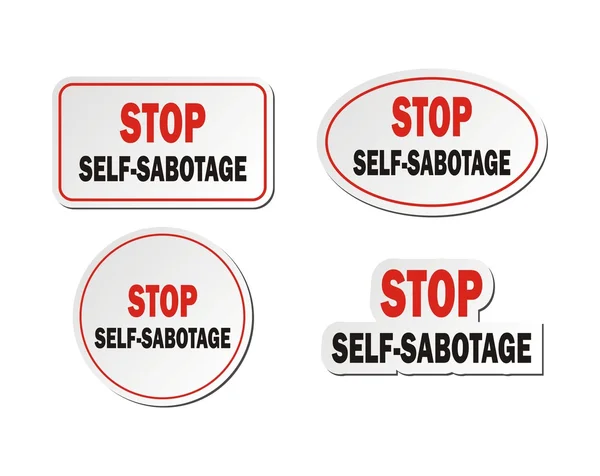 Create a new pattern – This is the fun part where you get to choose your next adventure!
Create a new pattern – This is the fun part where you get to choose your next adventure!
Once you’ve spotted your negative self-sabotaging habits and rooted out the cause of them, you can do the fun work of making a new pattern, one that serves your end goals and helps you grow with confidence and healing.
Think about who you really want to be – and start aligning your actions to that potential. Use affirmations to help ease your negative self-talk, so the next time you find yourself turning to your old self-sabotaging ways, you can confidently choose your new, self-affirming solutions.
Download our helpful list of Self-Affirmations to Help You End Self-Sabotage.
Most importantly, be compassionate. Old habits die hard and you will most likely find yourself falling back into old patterns. Just stop, recognize that you’re trying, and remind yourself of why these patterns didn’t actually work for you before – then give yourself the opportunity to do better.
This work takes time, and sometimes you need outside help to guide you down the path. Reach out to a qualified therapist or counselor to help you overcome your harmful self-sabotaging ways. We have many available who are fully trained in trauma a self-sabotage healing. Book a consult to find the right fit for you.
Self-Sabotage Espionage
Hey there, self-saboteur! I'm Niles Frasier, life coach, licensed counselor, and trauma specialist, owner of Self Aware, an academy created to help people who struggle to understand why they do the things they do.
In my 15 year practice as a counselor, I found that many of my patients suffer from the same self-limiting beliefs and repeatedly engage in the self-harm that comes from self-sabotage.
I decided it was time to focus on these issues and created a wellness center around the foundations of radical self-awareness, gathering experts in leadership, coaching, and mentorship, to help others unlock their potential.
Check out our articles in “Self” magazine, and tune into our guest spot on the “Inner Power” podcast.
Challenge Your Ways!
Check out these helpful resources to help you ditch your self-sabotaging ways!
1. Follow us on Instagram. From helpful tips and mindset hacks, to mindfulness reels and Q&A Lives, @SelfAware is an interactive resource to find compassionate help as you discover your happiest, healthiest self.
2. Listen to my Podcast interview on “Inner Power” where I share my passion for helping people unlock their potential best.
3. Want guidance on how to rewrite your patterns and build awareness? Book a consultation with me. We’ll not only assess your own self-sabotaging habits, we’ll look at the beliefs that brought you to them – and find better ways together.
Get To Know Yourself
Now that you've got some insight into how you’re holding yourself back, keep an eye on your inbox for a Self-Sabotage Counter Attack Strategy based around your quiz results.
Over the next week, I'll share with you more positive pattern building tips and tell you more about how to create a powerful recipe for personal success.
“Self-destruction and self-sabotage are often just the start of the self-resurrection process.”
― Oli Anderson
Your Self-Sabotage Specialty is… Cognitive Dissonance!
Life often throws us curve balls, and sometimes the crappy ones are the ones that form our deepest beliefs. But sometimes, things come to challenge those hard programmed beliefs and we tell ourselves lies so that we can hold onto our often pessimistic, self-limiting beliefs. Thus, we have the Joys of Cognitive Dissonance.
For example, if someone you trust lies to you early in life, it can be easy to believe that everyone will lie, even though later life experience shows you that there are lots of beautifully trustworthy people out there.
It seems more comfortable for you to believe they will eventually lie to you so that you’ll be ready when you’re disappointed by their eventual and inevitable betrayal.
I don’t think it’s hard to see why this is self-sabotaging.
By constantly believing that others will lie to you, let you down, and betray you, you keep yourself from ever truly trusting anyone, and rob yourself of healthy, meaningful connections.
Likewise, at work, if you see others as incapable of doing their own work, regardless of seeing their own proficiency, you’ll never be able to relax and enjoy the hard work of a team that is qualified and trusted to do a job without constant micromanaging.
And those beliefs are internalized, too.
When you’ve failed even though you tried hard, it can be easy to believe that you will ALWAYS fail, no matter how hard you try, even though repeated success shows you’re capable of not failing. So why bother trying?
When you keep selecting the option of NOT believing what you see in reality, you get to keep our old, comfortable beliefs… but at what cost
Luckily, there are steps you can take to overcome cognitive dissonance.
1. Safety – you have to dig deep and find the courage to believe that it’s SAFE to challenge your own limiting beliefs.
2. Work – you have to work hard to overcome those crappy beliefs when reality shows you that they’re wrong.
Yes, you have to admit that you were wrong.
But the beautiful thing about admitting you were wrong is you can step into the light of truth and accept a better reality.
3. Reconciliation – once you can reconcile the reasons behind your previous limiting beliefs, you can address the uncomfortable insecurities that they were hiding.
Was it lack of trust that stopped you from believing your team wouldn’t let you down?
Was it fear of success that kept you from believing you wouldn’t fail?
In the end, the formula for overcoming cognitive dissonance is:
Baby Steps + Courage + Deliberate & Uncomfortable Action.
“People do not seem to realize that their opinion of the world is also a confession of character. ”
”
— Ralph Waldo Emmerson
Self-Sabotage Counter-Attack!
If you want to stop the self-sabotage and finally get out of your own way, the key is to understand why you’re doing it — what need is it filling?
Then apply a little creativity to identify healthier, happier, and more productive ways to meet those needs.
Here’s a simple guide to help you begin the journey of rewriting your self-sabotaging programming:
The cure is Self-Awareness
1. Inventory – Reflect back and get curious about your own self-sabotage.
- What does your self-sabotage look like?
- How does it typically start?
- Are there any unhealthy patterns?
By taking the time to reflect and notice any repeating patterns, you can more easily recognize when it’s time to take over and kick those traits to the curb. You can then take a moment to pause and get familiar with what’s happening in your mind and body – what’s triggering them, and how it feels physically.
Check out our YouTube video on the Top 7 Self-Sabotage Traits That Hold You Back.
2. Challenge – Once you’ve spotted your self-sabotaging habits, it’s time to challenge what they’re actually doing for you.
If you want to stop procrastinating, you first need to realize that it’s helping you deal with your own fear of success. If you want to stop over committing, you need to recognize that it fills your need to feel useful by ignoring your own needs.
So ask yourself what your self-sabotaging habits ‘do’ for you – and then do the harder work of uncovering some underlying issues that you need to work through. Childhood trauma, feelings of inadequacy, even a pleasant life without challenges to build resilience can all lead to self-sabotaging behaviors.
Check out our worksheet Why Do I Do This? And How Can I Stop?
3. Create a new pattern – This is the fun part where you get to choose your next adventure!
Once you’ve spotted your negative self-sabotaging habits and rooted out the cause of them, you can do the fun work of making a new pattern, one that serves your end goals and helps you grow with confidence and healing.
Think about who you really want to be – and start aligning your actions to that potential. Use affirmations to help ease your negative self-talk, so the next time you find yourself turning to your old self-sabotaging ways, you can confidently choose your new, self-affirming solutions.
Download our helpful list of Self-Affirmations to Help You End Self-Sabotage.
Most importantly, be compassionate. Old habits die hard and you will most likely find yourself falling back into old patterns. Just stop, recognize that you’re trying, and remind yourself of why these patterns didn’t actually work for you before – then give yourself the opportunity to do better.
This work takes time, and sometimes you need outside help to guide you down the path. Reach out to a qualified therapist or counselor to help you overcome your harmful self-sabotaging ways. We have many available who are fully trained in trauma a self-sabotage healing. Book a consult to find the right fit for you.
Self-Sabotage Espionage
Hey there, self-saboteur! I'm Niles Frasier, life coach, licensed counselor, and trauma specialist, owner of Self Aware, an academy created to help people who struggle to understand why they do the things they do.
In my 15 year practice as a counselor, I found that many of my patients suffer from the same self-limiting beliefs and repeatedly engage in the self-harm that comes from self-sabotage.
I decided it was time to focus on these issues and created a wellness center around the foundations of radical self-awareness, gathering experts in leadership, coaching, and mentorship, to help others unlock their potential.
Check out our articles in “Self” magazine, and tune into our guest spot on the “Inner Power” podcast.
Challenge Your Ways!
Check out these helpful resources to help you ditch your self-sabotaging ways!
1. Follow us on Instagram. From helpful tips and mindset hacks, to mindfulness reels and Q&A Lives, @SelfAware is an interactive resource to find compassionate help as you discover your happiest, healthiest self.
2. Listen to my Podcast interview on “Inner Power” where I share my passion for helping people unlock their potential best.
3. Want guidance on how to rewrite your patterns and build awareness? Book a consultation with me. We’ll not only assess your own self-sabotaging habits, we’ll look at the beliefs that brought you to them – and find better ways together.
Get To Know Yourself
Now that you've got some insight into how you’re holding yourself back, keep an eye on your inbox for a Self-Sabotage Counter Attack Strategy based around your quiz results.
Over the next week, I'll share with you more positive pattern building tips and tell you more about how to create a powerful recipe for personal success.
“Self-destruction and self-sabotage are often just the start of the self-resurrection process.”
― Oli Anderson
Your Self-Sabotage specialty is… Overcommitting!
If you constantly take on more work than you can handle, always feel stressed by your To-Do list, and constantly feel like not enough butter scraped over too much toast, chances are you’re self-sabotaging by Doing Too Much.
When you set yourself up for failure by overcommiting in all the areas of your life, you also set yourself up for feelings of guilt, depression, and Burn Out.
Constantly being and doing extra can take a real toll on your mental health.
And when you put too much on your schedule, you can be left feeling like an inadequate failure when you can’t finish everything you start.
The guilt that comes from carrying around too heavy of a commitment load will often find you saying ‘yes’ when someone asks you to add ‘just one more thing’ to your already overladen workload.
It makes it almost impossible to establish and enforce healthy personal boundaries and can eventually lead to Burn-Out.
When you always put yourself last, you make your stress worse. And too much stress = increased cortisol levels = inflammation and weakened immune system.
Yes, you can overwork yourself into sickness.
So how does a chronic people-pleasing overcommitter take back control of their life and set healthy boundaries?
1. Think back. Take stock of all the things that have piled up on your To-Do List, especially the things that ended up on there that really shouldn’t have.
Think back. Take stock of all the things that have piled up on your To-Do List, especially the things that ended up on there that really shouldn’t have.
2. Be honest with yourself. Ask yourself why those things ended up there. Was it because you felt guilt if you said no? Was it to please someone else? Did it stem from insecurity? Recognize any unhealthy patterns and forgive yourself.
3. Make a new commitment… to do less. Remove anything from the list that really doesn’t serve you, or costs you too much in peace of mind to accomplish realistically. Create some healthy boundaries around your commitments, like no more volunteer work until you take some time for your own self-care first.
"The difference between successful people and really successful people is that really successful people say no to almost everything."
— Warren Buffet
Self-Sabotage Counter-Attack!
If you want to stop the self-sabotage and finally get out of your own way, the key is to understand why you’re doing it — what need is it filling?
Then apply a little creativity to identify healthier, happier, and more productive ways to meet those needs.
Here’s a simple guide to help you begin the journey of rewriting your self-sabotaging programming:
The cure is Self-Awareness
1. Inventory – Reflect back and get curious about your own self-sabotage.
- What does your self-sabotage look like?
- How does it typically start?
- Are there any unhealthy patterns?
By taking the time to reflect and notice any repeating patterns, you can more easily recognize when it’s time to take over and kick those traits to the curb. You can then take a moment to pause and get familiar with what’s happening in your mind and body – what’s triggering them, and how it feels physically.
Check out our YouTube video on the Top 7 Self-Sabotage Traits That Hold You Back.
2. Challenge – Once you’ve spotted your self-sabotaging habits, it’s time to challenge what they’re actually doing for you.
If you want to stop procrastinating, you first need to realize that it’s helping you deal with your own fear of success. If you want to stop over committing, you need to recognize that it fills your need to feel useful by ignoring your own needs.
If you want to stop over committing, you need to recognize that it fills your need to feel useful by ignoring your own needs.
So ask yourself what your self-sabotaging habits ‘do’ for you – and then do the harder work of uncovering some underlying issues that you need to work through. Childhood trauma, feelings of inadequacy, even a pleasant life without challenges to build resilience can all lead to self-sabotaging behaviors.
Check out our worksheet Why Do I Do This? And How Can I Stop?
3. Create a new pattern – This is the fun part where you get to choose your next adventure!
Once you’ve spotted your negative self-sabotaging habits and rooted out the cause of them, you can do the fun work of making a new pattern, one that serves your end goals and helps you grow with confidence and healing.
Think about who you really want to be – and start aligning your actions to that potential. Use affirmations to help ease your negative self-talk, so the next time you find yourself turning to your old self-sabotaging ways, you can confidently choose your new, self-affirming solutions.
Download our helpful list of Self-Affirmations to Help You End Self-Sabotage.
Most importantly, be compassionate. Old habits die hard and you will most likely find yourself falling back into old patterns. Just stop, recognize that you’re trying, and remind yourself of why these patterns didn’t actually work for you before – then give yourself the opportunity to do better.
This work takes time, and sometimes you need outside help to guide you down the path. Reach out to a qualified therapist or counselor to help you overcome your harmful self-sabotaging ways. We have many available who are fully trained in trauma a self-sabotage healing. Book a consult to find the right fit for you.
Self-Sabotage Espionage
Hey there, self-saboteur! I'm Niles Frasier, life coach, licensed counselor, and trauma specialist, owner of Self Aware, an academy created to help people who struggle to understand why they do the things they do.
In my 15 year practice as a counselor, I found that many of my patients suffer from the same self-limiting beliefs and repeatedly engage in the self-harm that comes from self-sabotage.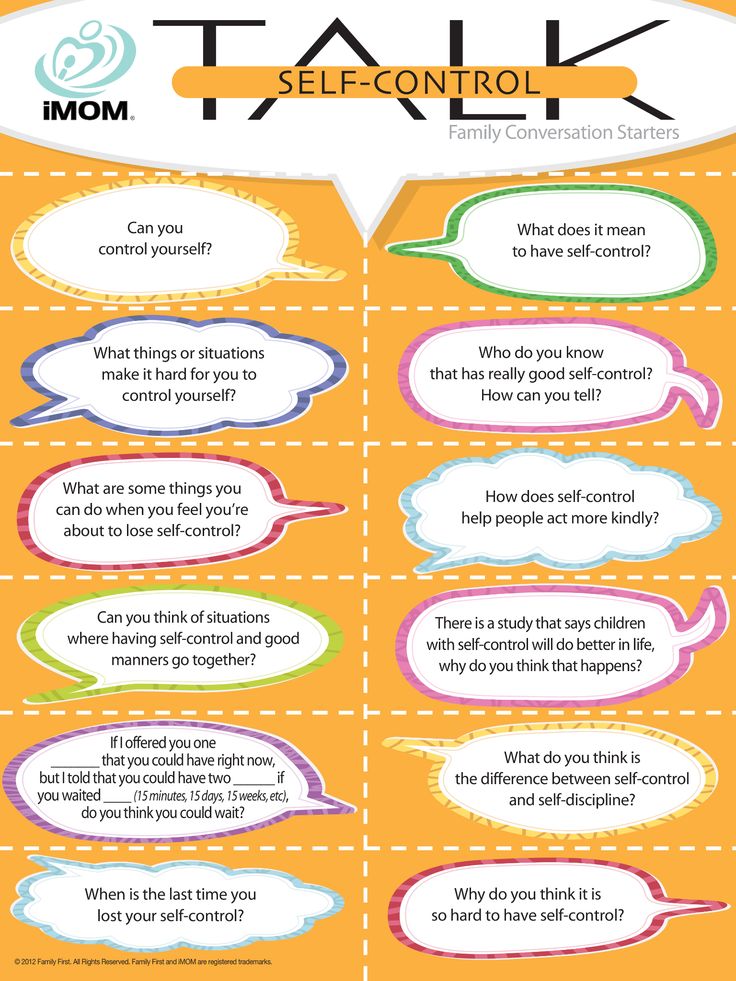
I decided it was time to focus on these issues and created a wellness center around the foundations of radical self-awareness, gathering experts in leadership, coaching, and mentorship, to help others unlock their potential.
Check out our articles in “Self” magazine, and tune into our guest spot on the “Inner Power” podcast.
Challenge Your Ways!
Check out these helpful resources to help you ditch your self-sabotaging ways!
1. Follow us on Instagram. From helpful tips and mindset hacks, to mindfulness reels and Q&A Lives, @SelfAware is an interactive resource to find compassionate help as you discover your happiest, healthiest self.
2. Listen to my Podcast interview on “Inner Power” where I share my passion for helping people unlock their potential best.
3. Want guidance on how to rewrite your patterns and build awareness? Book a consultation with me. We’ll not only assess your own self-sabotaging habits, we’ll look at the beliefs that brought you to them – and find better ways together.
Get To Know Yourself
Now that you've got some insight into how you’re holding yourself back, keep an eye on your inbox for a Self-Sabotage Counter Attack Strategy based around your quiz results.
Over the next week, I'll share with you more positive pattern building tips and tell you more about how to create a powerful recipe for personal success.
“Self-destruction and self-sabotage are often just the start of the self-resurrection process.”
― Oli Anderson
Your Self Sabotage specialty is… Perfectionism!
When you let your need to be perfect keep you from ever properly finishing anything – or worse, keep you from even starting something for fear of not doing it well enough – you’re actually sabotaging yourself.
This is a sneaky once because perfectionism is often sold as a fine attention to detail, and who doesn’t want that kind of expert attention?
But it can create a crippling fear of imperfection – and that ain’t good.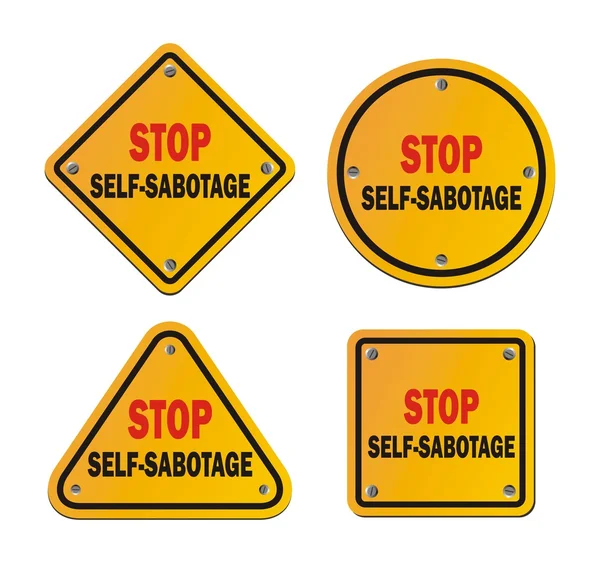
When you put so much emphasis on a perfect result, how do you ever find the motivation to get started?
And the negative self-talk that comes with perfectionism is even worse than the pressure of the task itself.
Do you constantly put yourself down?
Do you pick apart everything you do?
Can you let your mistakes go? Or do you replay everything you did wrong, in a horror movie hamster wheel reel of all your past failures?
The belief that you need to be perfect, no matter what, can take a serious toll on your mental health, causing depression and low feelings of self-worth and higher feelings of failure.
Not to mention, it paralyzes you when it comes time to make any productive steps ahead.
But the root of perfectionism is a need for control, which is ironic because it can often remove your control by incapacitating you with fear and hesitation.
But there are ways that you can take the reins on your perfectionism…
1. Take Stock – Look around and see how others accomplish similar tasks.
Take Stock – Look around and see how others accomplish similar tasks.
Are they getting the job done well enough?
Does your over-the-top attention to detail really count for much if it takes too much time or keeps you from completing things?
2. Relax Your Standards – I’m not saying half-ass everything, but maybe you don’t need to color coordinate your Post-Its or Alphabetize your spice cabinet.
Set SMART goals that are Specific, Measurable, Attainable, Relevant, and Time-Bound.
3. Get Real With Your Expectations – Stop comparing yourself to others and allow yourself some slack when you put pressure on yourself. As long as you’re motivated and doing your best work, you’re doing fine.
‘Perfect’ is a harmfully unattainable standard, and you’re just as human and imperfect as the rest of us.
Try to focus on finding joy and meaning in the things you do, rather than the perfect result.
Lastly, repeat after me, “Finished is better than perfect!” . ..because perfect rarely gets finished.
..because perfect rarely gets finished.
“The seed of your next artwork lies embedded in the imperfections of your current piece.”
- David Bayles
Self-Sabotage Counter-Attack!
If you want to stop the self-sabotage and finally get out of your own way, the key is to understand why you’re doing it — what need is it filling?
Then apply a little creativity to identify healthier, happier, and more productive ways to meet those needs.
Here’s a simple guide to help you begin the journey of rewriting your self-sabotaging programming:
The cure is Self-Awareness
1. Inventory – Reflect back and get curious about your own self-sabotage.
- What does your self-sabotage look like?
- How does it typically start?
- Are there any unhealthy patterns?
By taking the time to reflect and notice any repeating patterns, you can more easily recognize when it’s time to take over and kick those traits to the curb. You can then take a moment to pause and get familiar with what’s happening in your mind and body – what’s triggering them, and how it feels physically.
You can then take a moment to pause and get familiar with what’s happening in your mind and body – what’s triggering them, and how it feels physically.
Check out our YouTube video on the Top 7 Self-Sabotage Traits That Hold You Back.
2. Challenge – Once you’ve spotted your self-sabotaging habits, it’s time to challenge what they’re actually doing for you.
If you want to stop procrastinating, you first need to realize that it’s helping you deal with your own fear of success. If you want to stop over committing, you need to recognize that it fills your need to feel useful by ignoring your own needs.
So ask yourself what your self-sabotaging habits ‘do’ for you – and then do the harder work of uncovering some underlying issues that you need to work through. Childhood trauma, feelings of inadequacy, even a pleasant life without challenges to build resilience can all lead to self-sabotaging behaviors.
Check out our worksheet Why Do I Do This? And How Can I Stop?
3.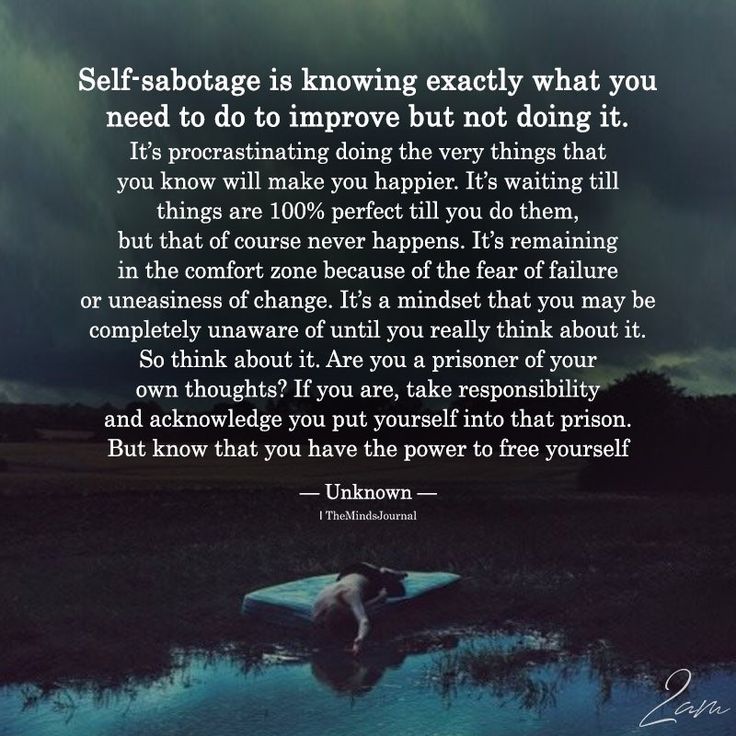 Create a new pattern – This is the fun part where you get to choose your next adventure!
Create a new pattern – This is the fun part where you get to choose your next adventure!
Once you’ve spotted your negative self-sabotaging habits and rooted out the cause of them, you can do the fun work of making a new pattern, one that serves your end goals and helps you grow with confidence and healing.
Think about who you really want to be – and start aligning your actions to that potential. Use affirmations to help ease your negative self-talk, so the next time you find yourself turning to your old self-sabotaging ways, you can confidently choose your new, self-affirming solutions.
Download our helpful list of Self-Affirmations to Help You End Self-Sabotage.
Most importantly, be compassionate. Old habits die hard and you will most likely find yourself falling back into old patterns. Just stop, recognize that you’re trying, and remind yourself of why these patterns didn’t actually work for you before – then give yourself the opportunity to do better.
This work takes time, and sometimes you need outside help to guide you down the path.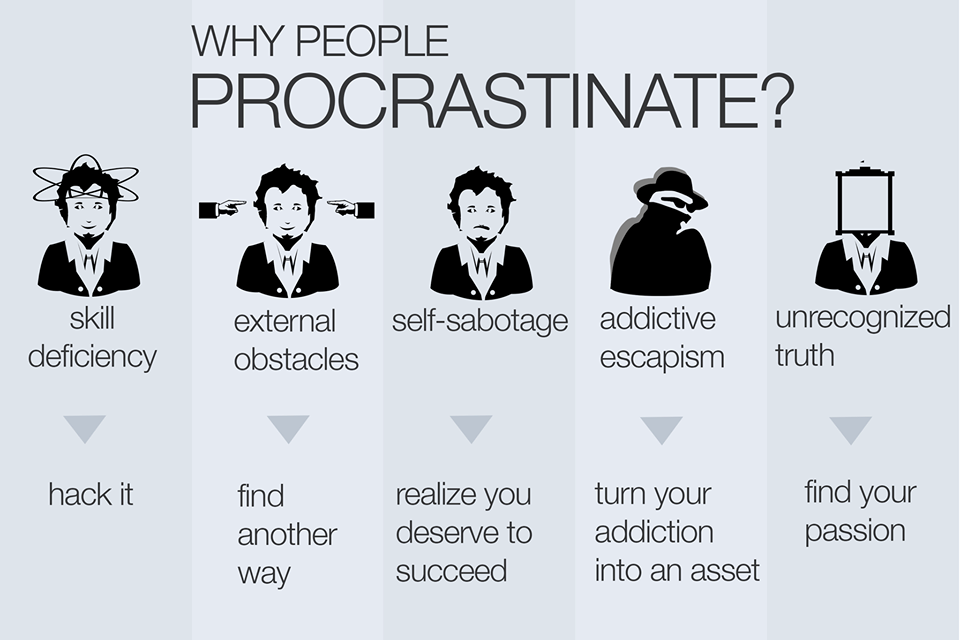 Reach out to a qualified therapist or counselor to help you overcome your harmful self-sabotaging ways. We have many available who are fully trained in trauma a self-sabotage healing. Book a consult to find the right fit for you.
Reach out to a qualified therapist or counselor to help you overcome your harmful self-sabotaging ways. We have many available who are fully trained in trauma a self-sabotage healing. Book a consult to find the right fit for you.
Self-Sabotage Espionage
Hey there, self-saboteur! I'm Niles Frasier, life coach, licensed counselor, and trauma specialist, owner of Self Aware, an academy created to help people who struggle to understand why they do the things they do.
In my 15 year practice as a counselor, I found that many of my patients suffer from the same self-limiting beliefs and repeatedly engage in the self-harm that comes from self-sabotage.
I decided it was time to focus on these issues and created a wellness center around the foundations of radical self-awareness, gathering experts in leadership, coaching, and mentorship, to help others unlock their potential.
Check out our articles in “Self” magazine, and tune into our guest spot on the “Inner Power” podcast.
Challenge Your Ways!
Check out these helpful resources to help you ditch your self-sabotaging ways!
1. Follow us on Instagram. From helpful tips and mindset hacks, to mindfulness reels and Q&A Lives, @SelfAware is an interactive resource to find compassionate help as you discover your happiest, healthiest self.
2. Listen to my Podcast interview on “Inner Power” where I share my passion for helping people unlock their potential best.
3. Want guidance on how to rewrite your patterns and build awareness? Book a consultation with me. We’ll not only assess your own self-sabotaging habits, we’ll look at the beliefs that brought you to them – and find better ways together.
Get To Know Yourself
Now that you've got some insight into how you’re holding yourself back, keep an eye on your inbox for a Self-Sabotage Counter Attack Strategy based around your quiz results.
Over the next week, I'll share with you more positive pattern building tips and tell you more about how to create a powerful recipe for personal success.
“Self-destruction and self-sabotage are often just the start of the self-resurrection process.”
― Oli Anderson
12 attitudes that make us miss chances for a better life, and tips on how to work through them
Surely you have noticed this with friends: a person over and over again turns up a chance to change life for the better - say, a promotion, an interesting project or a new relationship - and he stubbornly ignores all this. It is more difficult to notice such behavior behind oneself. But, if you try, be sure to remember your missed opportunities. Sometimes we make a choice consciously, but more often it is self-sabotage: some part of us prevents us from living a better life. And just on this topic, the writer Brianna Wiest talks in her new book From Self-Sabotage to Self-Development.
“Self-sabotage begins when there is a conflict between two desires, one of which we are aware of and the other remains subconscious,” writes Brianna Wiest, writer, researcher and author of From Self-Sabotage to Self-Growth. “We know that we want to move towards the goal, but for some reason we are marking time. If you are faced with difficult, simply unbearable problems - especially if the solution seems simple and obvious, but for some reason impossible - you need to realize that it is not the scale of the problem, but the power of habits.0003
“We know that we want to move towards the goal, but for some reason we are marking time. If you are faced with difficult, simply unbearable problems - especially if the solution seems simple and obvious, but for some reason impossible - you need to realize that it is not the scale of the problem, but the power of habits.0003
Incredible but true: people generally always act in accordance with their desires. But we often do not realize these desires. Let's say someone wonders why they can't get rich, but is subconsciously convinced that they don't like the rich. Why expose yourself? And he ignores opportunities over and over again.
There are people who find it difficult to understand why they choose the “wrong” partners and face rejection, violence, rejection of a serious relationship. They may not realize that they are recreating the same dynamic with different partners. Or they seek to repeat the relationship that developed back in the parental family: in childhood, such an environment caused a feeling of helplessness, and an adult expects that, within the framework of the same scenario, he can help a liar, an unbalanced person or a drug addict.
Negative beliefs
It turns out that the consciousness wants one thing, but the subconscious mind is sure that we need something completely different. And puts spokes in the wheels of dreams of a good life with the help of limiting beliefs. For example:
- If you succeed, people will stop loving you.
- If you allow yourself to fall in love, you will be too vulnerable.
- Less attractive, more safe.
- Caution and indecision help to avoid criticism.
- Procrastination allows you to stay in your comfort zone.
Self-sabotage is a way to satisfy a deep need that you may not be aware of.
12 signs of self-sabotage
Signs of self-sabotage are sometimes almost invisible. Therefore, we do not pay due attention to this problem until it escalates. Here are some of the most obvious symptoms.
1) You understand what you don't want, but you don't think about your desires
You spend much more time worrying and obsessing about what you don't want than planning what you want.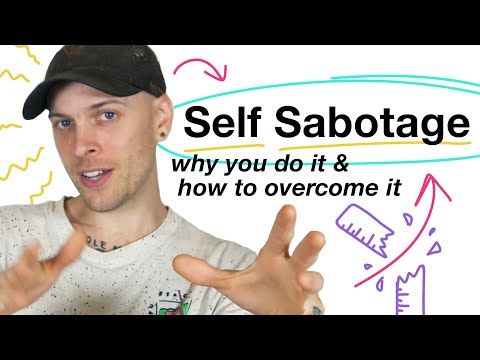
2) You try to impress those who obviously don't like you and spend much less time with those who appreciate and love you you consider enemies. At the same time, you spend much less energy on that side of your personality that relatives and friends love and appreciate, and do not put loved ones at the forefront.
3) You hide your head in the sand
Try not to think about important life issues, such as how much and to whom you owe money or how much people in your field are paid for the same work as you. If someone starts to argue with you, you prefer to walk away from the conversation and forget about it, rather than find out the cause of the disagreement and find a solution. In other words, you are ignoring important things, and therefore you should not count on correcting the situation.
4) It is more important for you to convince others that you are okay than to actually feel okay
You post pictures of yourself having a great time, even though you don't really feel happy. You spend a lot of effort trying to convince others of your own well-being, and are not ready to honestly tell about what is happening to you to people who could help or support you.
You spend a lot of effort trying to convince others of your own well-being, and are not ready to honestly tell about what is happening to you to people who could help or support you.
5) It is most important for you to please others, although sometimes you have to sacrifice well-being for this
You think more about whether people will approve of your actions (what kind of "people" are they, by the way?), and not about whether you are satisfied with your own decisions and actions - and in general with who you are.
6) Your biggest fear is your own feelings
If it's gotten to the point where you're most afraid of not being able to handle your own emotions, then you're the only one standing in your way - there are simply no bigger obstacles.
7) You rush to conquer another height without even understanding why you want it
and follow someone else's recipe for happiness.
8) You think that your defense mechanism is the main problem
Instead of trying hard to stop overeating, spending too much, drinking too much or having sex - you yourself know what is bothering you - think about why you do it, what emotional need are you satisfying? Without answering this question, you will struggle with bad habits all your life.
9) You listen too much to your doubts and underestimate your potential
The tendency to look at things from a negative point of view develops in us the habit of thinking that everything "bad" is more real than good. If we follow this tendency, we will soon come to believe that all our irrational fears are more real than the positive events that actually happen.
10) You are trying to do everything at once
Your willpower is not unlimited, and you do not have much time during the day. Don't try to be good at everything; better decide what is most important to you. Focus on just that, and everything else can be postponed or completely ignored.
11) You are waiting for someone to show you the way, approve your decisions or create the life you dream of
born with special privileges. Growing up, we understand that success is achieved by those who manage to combine a sincere interest, the right skills, a passionate attitude and find a niche in the market. Add a little persistence and you won't be successful unless you quit halfway through.
Add a little persistence and you won't be successful unless you quit halfway through.
12) You don't realize how much you have already achieved
Five years ago you were a completely different person. You are gradually changing, and in accordance with this, your self-image should also change. Acknowledge your own merit: you overcame what seemed impossible and created what seemed unattainable. You have gone much further than you think, and therefore you are much closer to the goal than you might think.
What to do?
The first step to getting out of the self-sabotage trap is to understand what needs you are really trying to satisfy. For example, if the need is to gain freedom, a person may sabotage professional opportunities. And if it is a feeling of being wanted and attractive, people can regularly find themselves in relationships where strong mutual attraction quickly develops, but prefer to avoid serious long-term decisions, fearing that the emotional intensity will subside.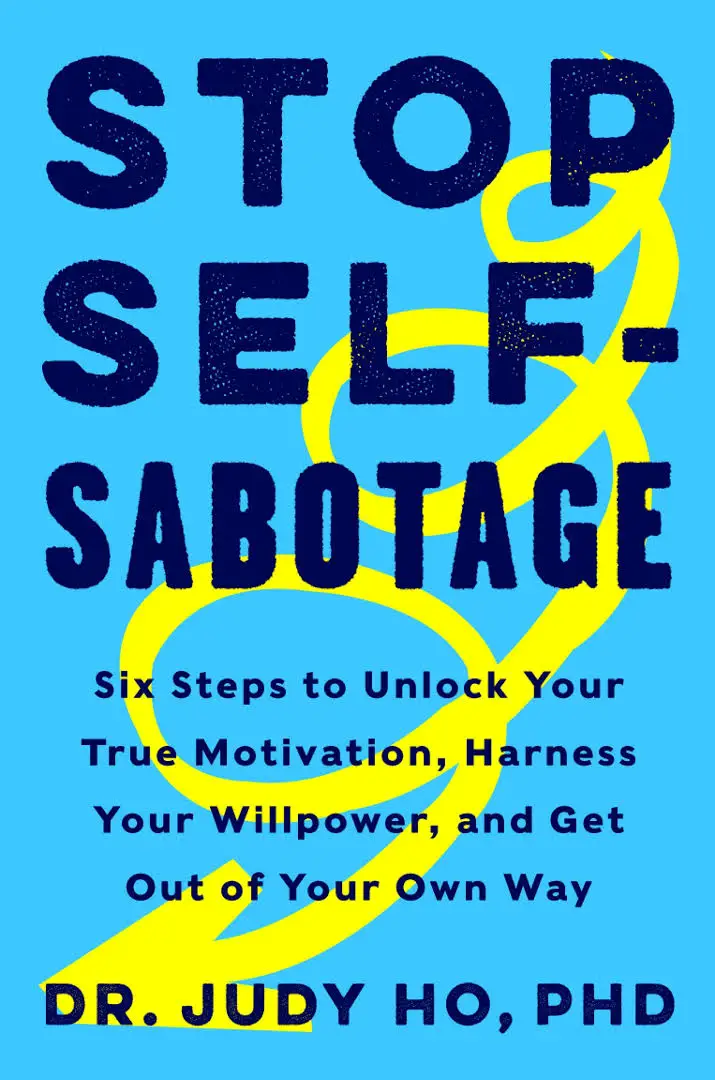 If the subconscious intention is the desire to control one's own life, then a person may be afraid of everything, which means losing control. Those who most want unconditional love from those around them may pretend to be helpless: if they do not demonstrate a need for others, these others may stop paying attention and even disappear altogether.
If the subconscious intention is the desire to control one's own life, then a person may be afraid of everything, which means losing control. Those who most want unconditional love from those around them may pretend to be helpless: if they do not demonstrate a need for others, these others may stop paying attention and even disappear altogether.
Start asking yourself what you really want, and you can stop fighting your symptoms and work on the one thing that matters most to you: living your core needs, that is, living in harmony with yourself.
Based on the book "From self-sabotage to self-development".
Which Bojack Horseman character are you?
Bojack Horseman Quiz
In 2014, Netflix released its first original animated series called Bojack Horseman, which tells the story of a former sitcom actor who tries to make a comeback but is engulfed by depression and addiction.
This deep and meaningful story is imbued with morals and deep meanings that will make you question your existence.
Bojack constantly makes the mistake of trying to numb his pain from previous bad behavior by doing even more questionable things. But in the end, all this leads to the fact that he begins to experience even more guilt.
This personality test will show which of the following characters you are!
Bojack Horseman Characters
Bojack Horseman features many fantastic characters, each with their own unique personality. From BoJack himself to his friends, colleagues and enemies, there is a character for everyone on this show.
Bojack Rider
Bojack is our protagonist and possibly one of the saddest protagonists ever depicted. He is imperfect and refuses to accept himself. Bojack constantly engages in self-sabotage, constantly drawing pity from those around him as he becomes depressed and addicted.
People who relate to BoJack often have a troubled past or some sort of kinship with his life, whether it be depression, anxiety, addiction, or any of his many problems.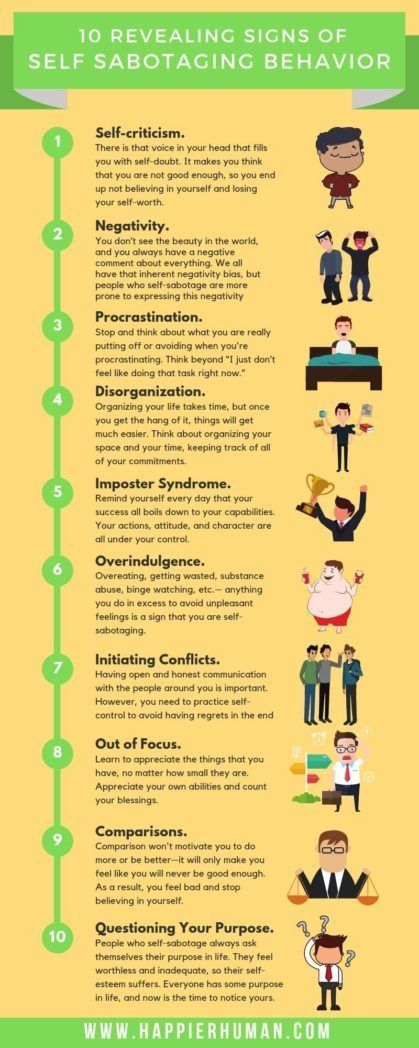
Todd Chavez
Todd is a friendly and loving guy. He is loyal to almost all of his friends and is willing to do anything to be with them. Todd is looking for meaning in his life and often finds himself in an existential crisis trying to find the true meaning behind anything.
People who may relate to Todd are often friendly and well liked by others. You may seem like a happy and cheerful person, but inside you are in search of your goal.
Diane Nguyen
Diane Nguyen is a boring and compassionate girl who constantly cares about her friends and tries her best to understand them.
If you can relate yourself to Diana, then most likely you are a person who cares a lot about others, maybe even too much, and this can become a problem for you, because your life can begin to revolve around other people.
Mr Peanut Butterfly
Mr Peanut is a stereotypical dog; loud, fun and energetic. He is sure to carry a playful demeanor wherever he goes and is uplifting.
If you can identify yourself with Mr. Peanuts, you are most likely a very cheerful and optimistic person; keep smiling!
Princess Caroline
Princess Caroline is an extraordinarily ambitious and hardworking girl who ensures that her goals are achieved no matter what.
If you are ready to do anything to achieve your goals, then most likely you look like Princess Caroline.
Sarah Lynn
Sarah is an unhappy and destructive character, often destroying things emotionally and physically around her. Perhaps "tragic" is a better word to describe her. After all, the root cause of her destructiveness lies in the fact that everyone expects her, which leads her to a hell hole of addiction.
If you can relate to Sarah, it may mean that you are not living the life you want, but rather the life that people expect of you. Sarah Lynn's evil nature was shaped by a constant fear of not living up to people's expectations, so she resorted to seeking attention and approval.
Don't let others dictate your life to you; come out and live the way you want to live!
Judah Mannovdog
Judah is probably one of the show's most professional and presentable characters; he is constantly shown with a blank face and apathetic, although he is quite sincere and caring on the inside.
If you can identify yourself with Judas, you are most likely very rational. You think before every action and have a wise outlook on life. Although your extreme professionalism also results in jokes flying over your head.
Holyhawk
Hollyhawk is one of the cutest characters in the series; she shows genuine affection and love for others and is very innocent.
If you can identify with Hollyhock, it probably means that you are kind and caring to those you love, and also quite innocent. In contrast, you are also rather lazy and will constantly fight the urge to not do basic things like cleaning up after yourself.
Bojack Horseman's moral message
Bojack Horseman touches on some very dark themes and tackles them in clever ways with some comedy.
